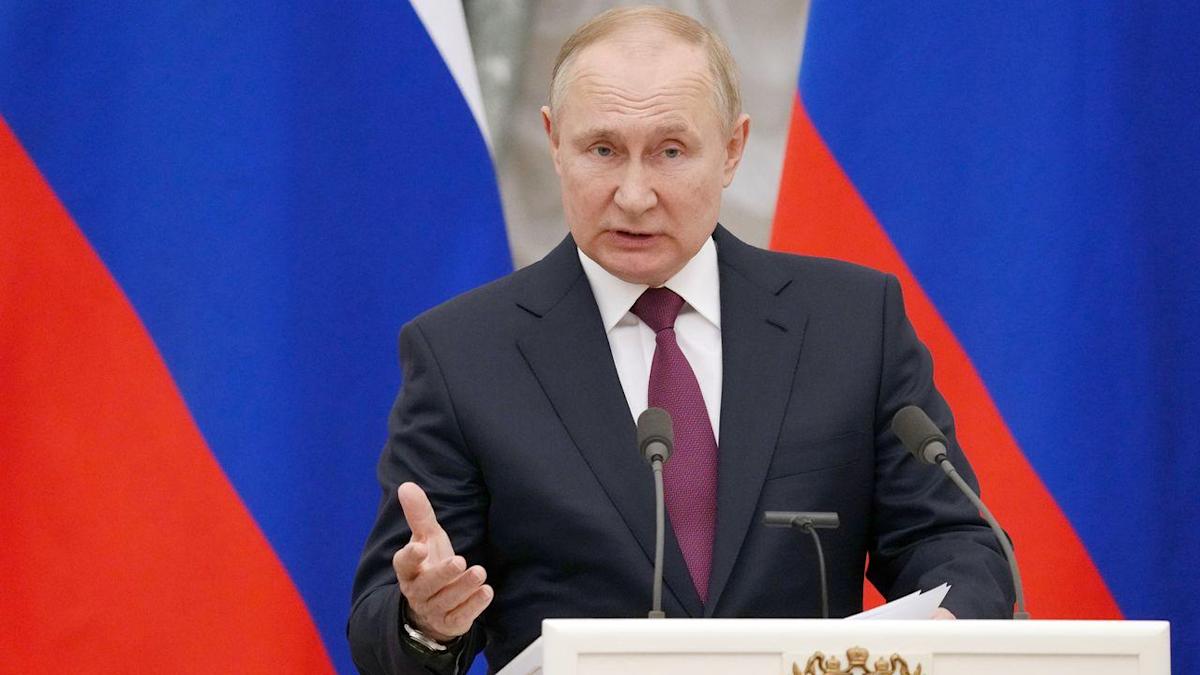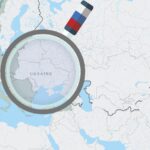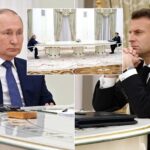
Russian President Vladimir Putin confirmed Tuesday that he had decided to withdraw some troops from the border with Ukraine and was prepared to re-enter security negotiations with the U.S. and NATO.
Why it matters: The partial pullback marks the first sign of de-escalation since Russia began its massive military mobilization near Ukraine late last year, but Putin also made clear the threat is not over.
Get market news worthy of your time with Axios Markets. Subscribe for free.
Driving the news: Speaking alongside German Chancellor Olaf Schoz, Putin stressed that “of course” he does not want war to break out in Europe, but that this is why it is so important that Russia’s security demands are accepted by the U.S. and NATO.
-
Close observers of Russia’s military movements note that while a relatively small number of forces do appear to be moving back, those movements thus far pale in comparison to the arrivals of additional troops and equipment just in the past few days.
-
NATO Secretary-General Jens Stoltenberg earlier on Tuesday welcomed Russia’s signals that is prepared for additional diplomacy, but said he’d seen no signs of de-escalation on the military front.
The big picture: A day after Russia’s foreign minister said diplomatic efforts with the West “are far from exhausted,” Putin announced he was ready for new talks with the U.S. and NATO on missile deployments in Europe and military transparency.
-
The Western alliance last month proposed a narrow set of “confidence-building” measures that the two sides could work on to defuse tensions, but ruled out any freeze on NATO expansion — Russia’s top demand.
-
Addressing Russia’s concerns about Ukraine joining NATO, Scholz said he does not believe eastern expansion will be on the agenda for the duration that either he or Putin will be in office.
-
Putin did not appear reassured. “They say it won’t happen tomorrow,” he said of NATO expansion, “but what about the day after tomorrow?” He added that the talks must cover Russia’s demands, not just the issues NATO put forward.
-
“We are afraid that the negotiations on the important matters to us, security matters, could be drawn out without [progress],” Putin said.
What to watch: A vote in the Russian Duma on Tuesday complicated the narrative that Putin was stepping back from the brink.
-
Russia’s rubber-stamp parliament voted to ask Putin to recognize the two breakaway republics in eastern Ukraine where separatists have been battling Ukrainian troops since 2014.
-
Because the separatists don’t hold all of the territory they claim, recognizing them as sovereign states could suggest Russia is prepared to step up its military intervention.
Between the lines: Some experts are skeptical that Putin will act on the request. Scholz noted that doing so would be a death knell for the Minsk agreements, which call for Ukraine to grant the eastern territories a “special status” following a ceasefire.
-
Russia accuses Ukraine of failing to comply with those agreements, but Scholz said Ukrainian President Volodymyr Zelensky told him in their meeting in Kyiv on Monday that he was prepared to proceed with implementation.
-
Putin replied skeptically, and even accused Ukraine of committing “genocide” against Russian speakers in the East, a claim that isn’t supported by evidence. But he did say that not all opportunities to implement the agreement had been exhausted, and called on Germany and France to pressure Kyiv to comply.
Worth noting: Scholz condemned the new judicial proceedings against jailed Russian opposition leader Alexei Navalny, which began today and could see up to 15 years added to his sentence.
Like this article? Get more from Axios and subscribe to Axios Markets for free.




